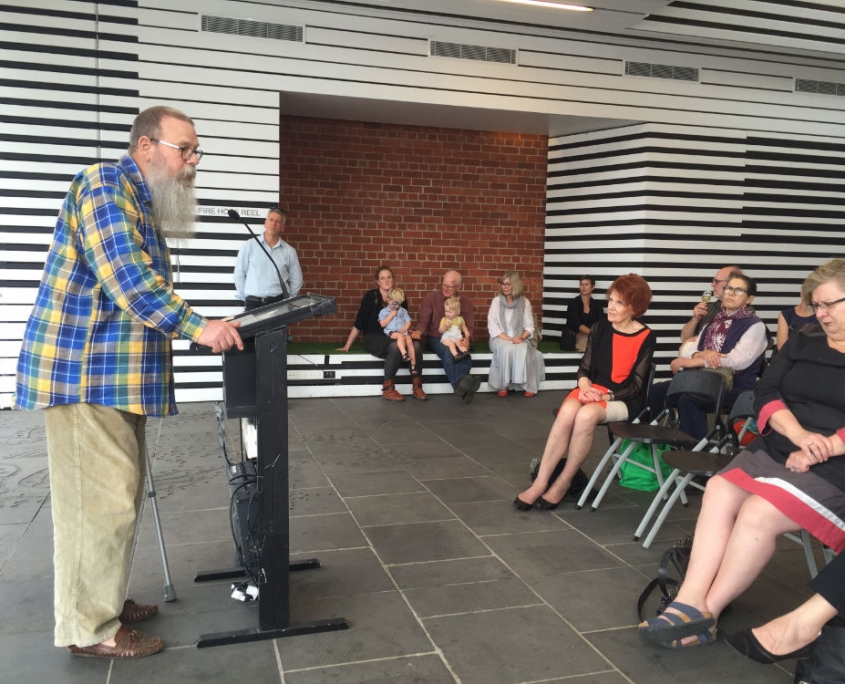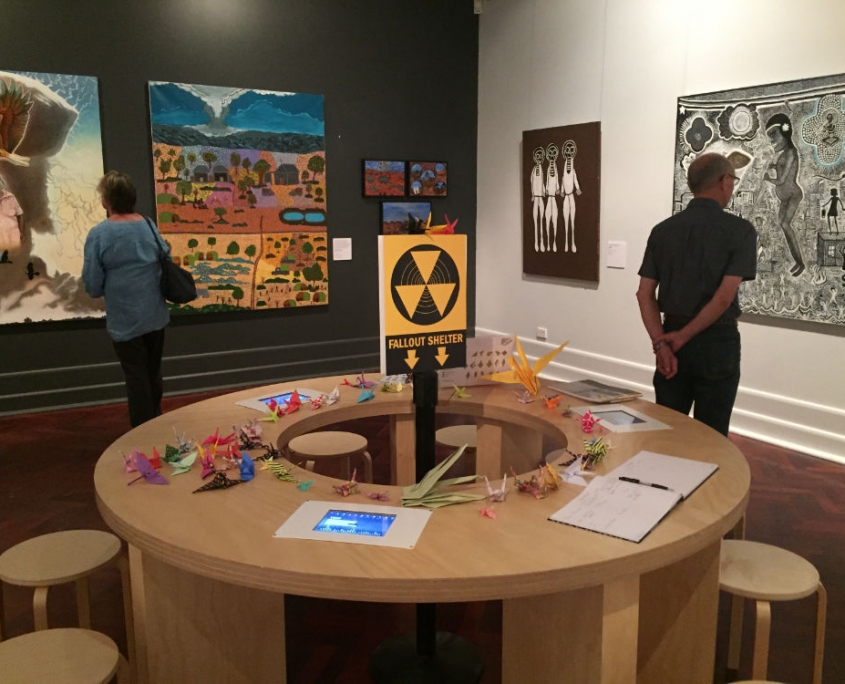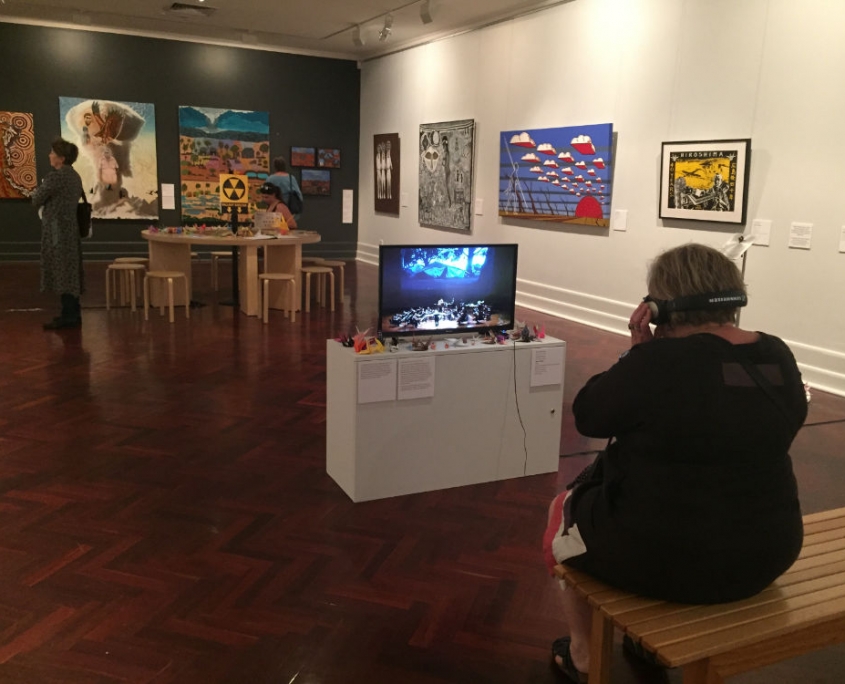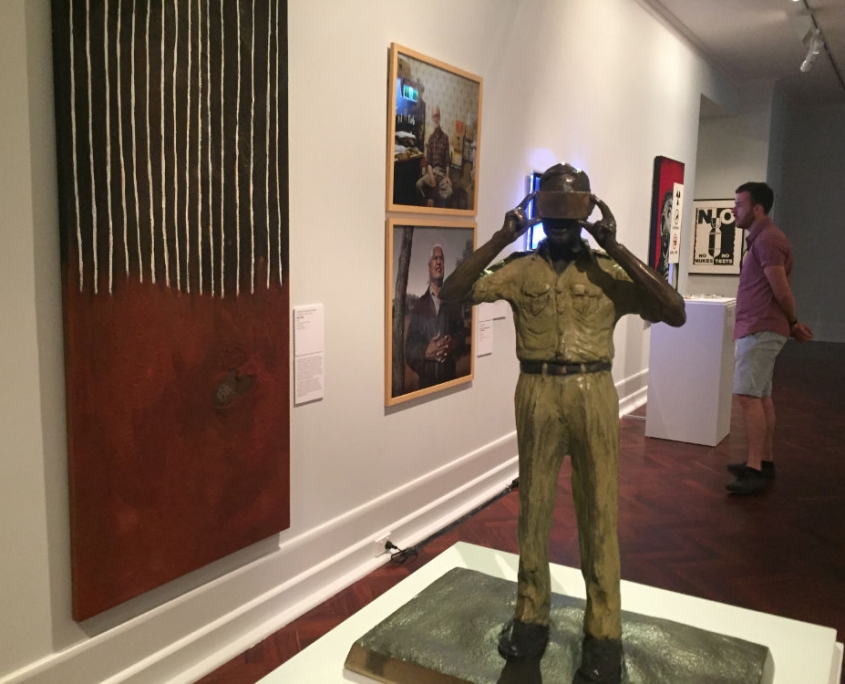Operation Hurricane (detail), Kate Downhill
Art Gallery of Ballarat
3 December 2016 – 5 February 2017
Venue info:
40 Lydiard St North
Ballarat, VIC
Ph 03 5320 5858
www.artgalleryofballarat.com.au
Opening Hours
Daily, 10am – 5pm
(closed Christmas Day and Boxing Day)
Reviews
Konrad Marshall, The Good Weekend
4 February 2017
Program
Wednesday, 30 November 2016, 5-6.30 pm
One Step Closer
New international initiatives to prohibit nuclear weapons
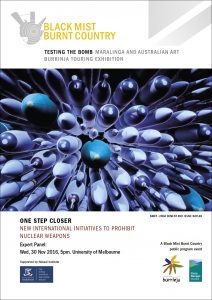 On 27 October the United Nations General Assembly adopted a landmark resolution to launch negotiations on a treaty outlawing nuclear weapons. 123 nations voted in favour of the resolution (Austria was among the co-sponsors). Yet, most nuclear-armed nations voted against the UN resolution as did most of their allies, including nearly all NATO members. Australia also voted against the resolution.
On 27 October the United Nations General Assembly adopted a landmark resolution to launch negotiations on a treaty outlawing nuclear weapons. 123 nations voted in favour of the resolution (Austria was among the co-sponsors). Yet, most nuclear-armed nations voted against the UN resolution as did most of their allies, including nearly all NATO members. Australia also voted against the resolution.
An expert panel will give an overview of the efforts which led to this new initiative and analyse the resolution in view of future negotiations in 2017 for a legally binding instrument to prohibit nuclear weapons, leading towards their total elimination.
Panelists:
- Dr Phoebe Wynn-Pope, Director of Humanitarian Law and Movement, Relations, Australian Red Cross
- Dr Bernhard Zimburg, Ambassador Austrian Embassy Canberra
- Prof Richard Tanter, School of Political and Social Studies at the University of Melbourne
- Assoc. Prof. Dr Tilman Ruff, Co-president of International Physicians for the Prevention of Nuclear War
- Tim Wright, Asia-Pacific Director of the International Campaign to Abolish Nuclear Weapons (ICAN)
Moderate: Bishop Philip Huggins, Oodthenong area of episcopal care
Sunday 4 December 2016, 3 pm
Official Exhibition Opening
Saturday, 10 December 2016, 11 am
Guided tour with the curator
An overview of artwork in the exhibition with exhibition curator JD Mittmann and an insight in the artistic responses to the British atomic tests in Australia 60 years ago.
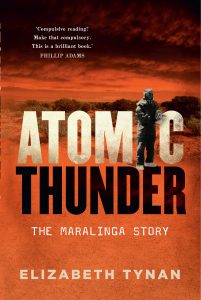 Saturday, 10 December 2016, 2 pm
Saturday, 10 December 2016, 2 pm
Author Liz Tynan launches her book “Atomic Thunder – The Maralinga Story”
In 1950 Australian prime minister Robert Menzies blithely agreed to atomic tests in Australia and relinquished control over them. In this new book Journalist and academic Elizabeth Tynan reveals the devastating consequences of that decision, and how Maralinga has continued to be shrouded in mystery decades after the atomic thunder stopped rolling across the South Australian test site.
www.newsouthbooks.com.au/books/atomic-thunder/
Film Screenings
at M.A.D.E. Museum of Australian Democracy at Eureka, Ballarat
Sunday, 11 December 2016, 1 pm
Backs to the Blast: An Australian Nuclear Story
Dir. Harry Bardwell
52 min, Australia 1981
A documentary history of the uranium and nuclear industry in South Australia from 1910 to 1980. Incorporates rare archival footage and contemporary interviews with workers, scientists and politicians, presenting an analysis of the effects of uranium and its products. Provides a detailed examination of the uranium mine at Radium Hill, the uranium oxide refinery at Port Pirie and the British atomic weapons test site at Maralinga.
Sunday, 18 December 2016, 1 pm
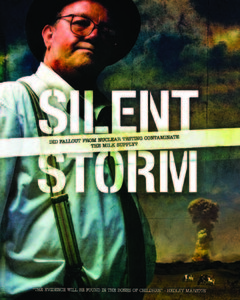 Silent Storm
Silent Storm
Dir. Peter Butt
52 min, Australia 2003
Set against a backdrop of the Cold War, the saga follows scientist Hedley Marston’s attempt to blow the whistle on radioactive fallout from the British atomic tests in Australia. His claims that cities and grazing lands were contaminated and that Strontium 90 was in the milk supply were disputed, but the government’s own bone surveys proved his assertion right.
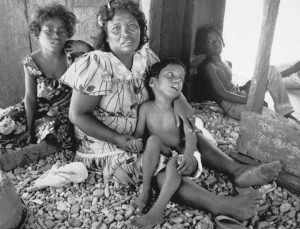
Sunday, 15 January 2017, 1 pm
Half Life: A Parable for the Nuclear Age
Dir. Dennis O’Rourke
84 min, Australia 1985
Between 1946 and 1958 the U.S. Atomic Energy Commission exploded at least 66 nuclear devices in the Marshall Islands, contaminating them for centuries to come. This film is about the devastating effects of radiation on the islanders. In the course of his investigations, the filmmaker found that the official view of the tests was unsustainable.
Won the Peace Film Award in 1986 at the Berlin International Film Festival.
Sunday, 22 January 2017, 1 pm
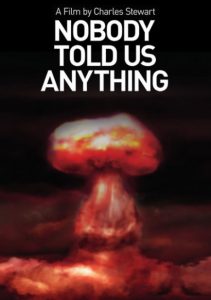 Nobody told us anything
Nobody told us anything
Dir. Charles Stewart
96 min, United Kingdom 2014
Between 1952 and 1967, in the largest Tri-Service operation since the D-Day landings, over 20,000 servicemen participated in British Nuclear Weapons Tests. The 2011 British Nuclear Test Veterans Health Needs Audit shows that a daunting shadow still hangs over the Veterans. This documentary tells that story in archive footage and candid interviews with the survivors and their children.
Sunday, 29 January 2017, 1 pm
Australian Atomic Confessions (with film maker Kathy Aigner)
Dir. Gregory K. Young
50 min, Australia 2005
Documentary about the compelling story of the 12 British atomic bomb tests in the 1950s, discussed by Aboriginal elders, veterans, experts and the premier of South Australia. With the building of a new 500 million dollar nuclear reactor in a Sydney suburb, the expansion of more multi-national uranium mines and the associated poisoning of the Great Artesian Basin, reflecting about nuclear energy uses is now as important as ever.

